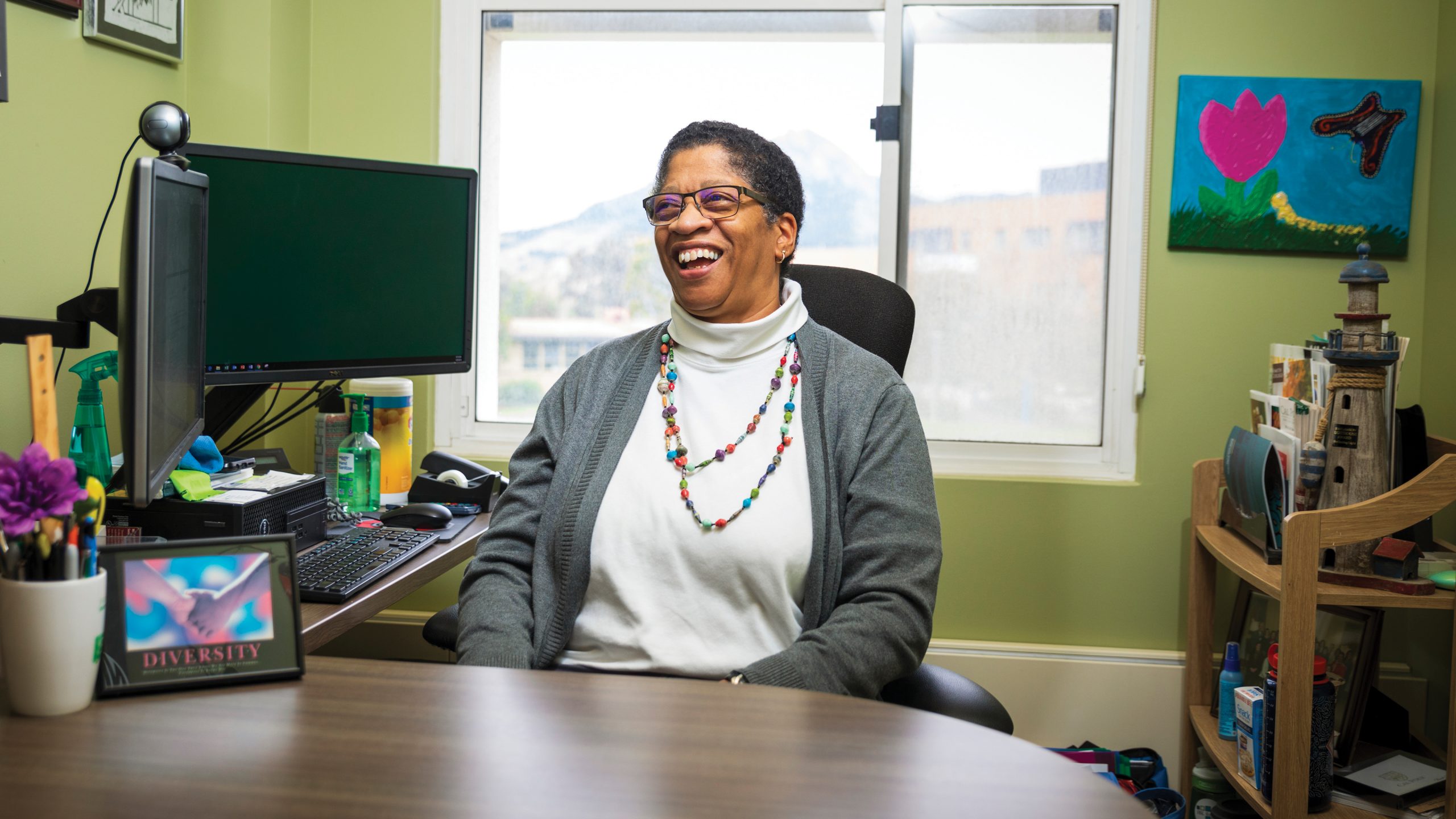
At an award ceremony in January, kinesiology Professor and College of Science and Mathematics Associate Dean Camille O’Bryant was named the recipient of Cal Poly’s inaugural MLK Legacy Award for leadership in diversity, equity and inclusion. We spoke with O’Bryant about what the award means and why that work is important at Cal Poly.
What do you think people might be surprised to learn about what it means to be part of a marginalized group at Cal Poly?
One of the difficulties underrepresented people face is in finding community in ways that allow them to be integrated with the campus at large, but also finding affinity with people who are like themselves. Sometimes that’s frowned upon. “Why are all the black kids sitting together in the cafeteria?” But no one asks that when white kids sit together, or when women sit together, or when men sit together.
Another thing people might not understand is that trying to support more inclusion and equity is not a competition. All forms of discrimination and injustice are bad. The question is how do we as a community and an institution do better at trying to be equitable, and not set up some hierarchy of privileging one group over another. True inclusion and equity means that we all benefit.
What has changed at Cal Poly in terms of diversity and inclusion in the 20 years you’ve been here?
We now have more of a strategic, collective effort to focus on inclusion and diversity and equity in our curriculum and in the demographics of who we are as a community. To not just expect it to happen because people feel it’s the right thing to do, but to be strategic and intentional around our efforts to provide a more diverse and inclusive environment. From how we use our resources to the growth of cultural commencements and student groups, it’s just across every layer of the institution — more visible attention to how we want to live our values around diversity and inclusion.
Where are some areas where we can continue to grow? Where do we have an opportunity to continue to improve in inclusion?
We can do better at just being able to understand what we are doing. We have a lot of things going on at Cal Poly to help foster a more inclusive environment, but a lot of times the right hand doesn’t know what the left hand is doing. That’s why groups like the Office of University Diversity and Inclusion are starting to bring people together from across campus to figure this out.
This award recognizes your efforts to enhance diversity and inclusion on campus. What are some of the things you’ve done that you are most proud to have been a part of?
One person does not do this work alone. When I think about what I’m most proud of, it’s my ability to connect people together who have a shared vision or interest in trying to improve campus climate and inclusion and diversity. I’m the one asking, “Why can’t we try something new?” I tend to ask tough questions because I’m curious, and because I want the university administration and students to know that we care.
Why is it important that we work to enhance diversity and inclusion in education and specifically here at Cal Poly?
It’s important because everyone who wants to be successful has to feel included. That’s just a basic human need. If you study human behavior, you can see that people are going to be motivated to try to succeed if they feel like they belong. That they’re not just a body taking up space in a class, but they can see that their experiences and their voice matters. We need to stop being blind to things like race, gender, sexual orientation and physical ability, and actually be more conscious about it. Because we’re not all the same! Part of being on teams means working cohesively, and sometimes you’re going to have to do that based on your differences. If we don’t educate our students to do that, we’re not really preparing them for the real world.


